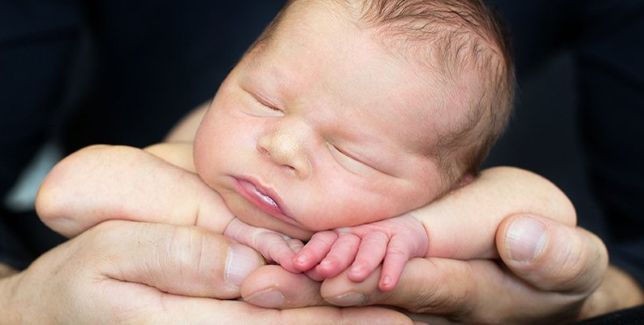



Summary
Think twice before you kiss that baby! RSV is an RNA virus, which is the most common cause of bronchiolitis (inflammation of the smaller lung airways) and pneumonia in children under a year old.
Respiratory Syncytial Virus (RSV) is typically seen in the fall and winter with disease activity usually slowing down by April.
Yes, we are in the midst of RSV season. That is why we need to be reminded of what it is and how it can affect our children and the general population.
RSV is spread through respiratory droplets (coughing and sneezing) and through direct contact with contaminated surfaces.
RSV is an RNA virus, which is the most common cause of bronchiolitis (inflammation of the smaller lung airways) and pneumonia in children under a year old. Infants under 6 months old, especially preemies, children with heart conditions, children and older adults who are immune compromised and with chronic medical conditions are at risk for severe disease.
If your child has cold symptoms and attends day care or has been exposed to someone with cold symptoms, suspect RSV as the possible cause.
Symptoms may include:
- Cough
- Nasal congestion
- Runny nose
- Fever
- Fussiness
- Poor feeding
The symptoms may or may not progress to bronchiolitis or pneumonia. These manifest with:
- Rapid breathing
- Nostril flaring
- Grunting
- Tugging between ribs and lower neck when breathing
- Belly breathing
- Wheezing
- Apnea (stopping breathing), particularly with newborns
Symptoms occur within about a week from exposure. and the infected person is contagious for three to eight days. Cough may linger for two to three weeks.
Course of Illness
Symptoms are at their worst on Days 2-5. This is when you need to watch out for high fever, increased work of breathing and even dehydration as they may not drink as much when they are coughing or congested. Fortunately, almost all kids recover on their own. High risk groups mentioned above are more prone to being hospitalized or even death.
Diagnosis & Treatment
Your pediatrician will obtain medical history information and perform a physical exam and nasal swab test.
If there are lung symptoms, we usually do a chest X-ray. We also perform a pulse oximeter test to determine the severity of the disease and whether hospitalization is needed.
There is no definite cure for RSV. Mild to moderate symptoms are treated with:
- Nasal saline and gentle nose suctioning to manage secretions and for ease of feeding
- Use of cool mist humidifier
- Keeping well hydrated
- Acetaminophen or Ibuprofen for fever.
- About 3% of RSV cases require hospitalization--those requiring oxygen and IV fluids, and those who may need to be cared for in the Pediatric Intensive Care Unit.
Prevention
Here are some ways to help keep your child healthy during RSV season:
- Wash hands with soap and water for 20 seconds
- Limit crowd exposure
- Keep children out of day care and away from other kids if they have obvious cold symptoms, especially if they test positive for RSV
- Teach older kids to cover their coughs and sneezes
- Disinfect objects and surfaces in your home frequently
- Avoid exposure to tobacco
- Consider giving your child Beyfortus, a preventative antibody which prevents serious RSV lung-related infections. Beyfortus is not a vaccine but rather given as a one-time shot in the baby’s thigh.
The U.S. Centers for Disease Control and American Academy of Pediatrics recommend it for:
- Newborns and babies under 1 year of age born during or entering their first RSV season
- Children up to 24 months of age who remain at risk of severe RSV disease through their second RSV season
- In clinical trials, it has been shown to reduce the incidence of hospitalizations and ICU admissions by 75-90%.
Beyfortus is effective right away since it does not require the infant to mount an immune response like vaccines do. In clinical trials, protection may last for five months, which covers the RSV season.
The safety of Beyfortus was found to be similar to placebo in clinical studies. Mild to moderate side effects were seen in about one in 100 children. The most common side effects of Beyfortus include rash and pain, swelling or hardness at the site of your baby's injection, which resolves right away. Hypersensitivity reaction may occur but has been rare.
Keep Baby Safe
So, before you visit with, kiss or hold a baby this winter, make sure that you do not have any cold symptoms and always practice good handwashing.


Veronica Valdez, MD
Pediatrics
Dr. Veronica Valdez is a pediatrician with Children’s Clinic in Tupelo and Ecru and serves as chair of North Mississippi Medical Center's Pediatrics section. Dr. Valdez earned her medical degree from the University of the Philippines College of Medicine in 1987 and completed a clinical fellowship in pediatric endocrinology at North Shore University Hospital in Long Island, New York, in 1994. She is a Fellow of the American Academy of Pediatrics and joined the Children's Clinic staff in 2008.